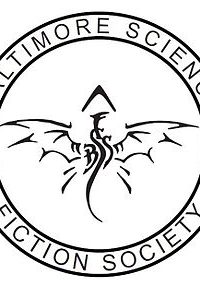Howard Waldrop (1946-2024)
Author Howard Waldrop, 77, died January 14, 2024. Waldrop was one of our most accomplished and celebrated authors of short fiction, known for his erudite, playful, and allusive work. His most famous story, “The Ugly Chickens” (1980), won World Fantasy and Nebula Awards, and was a Hugo Award finalist.
Waldrop’s first work of genre interest was “Lunchbox” in Analog (1972), and he went on to publish scores of stories, including seven Nebula Award finalists and eight Hugo Award nominees. His stories were collected in Howard Who? (1986), All About Strange Monsters of the Recent Past (1987), Night of the Cooters (1990), Going Home Again (1997), Dream Factories and Radio Pictures (2001), Heart of Whitenesse (2005), The Horse of a Different Color (That You Rode in On) / The King of Where-I-Go (2006), Things Will Never Be the Same: A Howard Waldrop Reader: Selected Short Fiction 1980-2005 (2007), Other Worlds, Better Lives: A Howard Waldrop Reader: Selected Long Fiction 1989-2003 (2008), and Horse of a Different Color (2013). Custer’s Last Jump and Other Collaborations (2003) features stories he cowrote with others, and some of his early work was collected in H’ard Starts: The Early Waldrop (2023).
He wrote two novels, collaborative SF The Texas-Israeli War: 1999 (1974, with Jake Saunders) and alternate history/time-travel tale Them Bones (1984). A Dozen Tough Jobs (1989) is a novella retelling the Labors of Hercules set in 1920s Mississippi.
Waldrop was born September 15, 1946 in Houston, Mississippi, but spent most of his life in Texas, and much of his writing was set in the American South and Southwest. He was a member of the Turkey City Writing Workshop, and taught at the Clarion Writers Workshop. Waldrop was a beloved and major figure in the Texas writing community, and was famous for his hilarious readings at conventions.
In 2021, he received a World Fantasy Award for Life Achievement.
For more, see his entry in The Encyclopedia of Science Fiction.
[edited to correct date]





Sad. Them Bones, together with The Last Day of the Creation by Wolfgang Jeschke, were sober (and rare in the genre) answers to all those novels where time travelers go into the past to make “easy” fixes of their own mistakes.
This is incredibly sad. Discovering “Ihre Gebeine/Them Bones” in a German department store in 1999 was a life changing experience. My partner at the time was an archeologist, specialising in Bolivia and a bit of Mexico, and I always loved time travel stories. So it was a no-brainer to buy it, although the cover was plug ugly, and I had never heard the name of the author before. I had one of the best reading evenings of my life before me…everything about the story felt “right” and “brand-new” at the same time…exposition, world-building, characterization, repertoire elements, pacing, finale…I was completely blown away. Little did I know that quite a few of his short stories were even better, and also his fore- and afterwords brimmed with life. I will miss him, very much so.
I remember, decades ago, attending a con where Howard Waldrop was one of several authors doing midnight readings. His contribution was a chapter from a work in progress, a retelling of the story of Sir John de Mandeville. It was one of the best things I’ve ever heard, and I’ve been hoping against hope — hopes now dashed — that he would some day finish it. His recounting of de Mandeville’s enforced trip to gather a fruit from the world’s most poisonous tree was jaw-dropping and riveting. Now all gone, like tears in the rain…
Howard Waldrop is the third (of four) founding members of Turkey City Writer’s Workshop to wend their way into eternity. Eternity must be having a roaring good time hosting Tom Reamy, Steven Utley, and now Howard. I must say I’m getting tired of saying goodbye to my favorite writers. I came across Howard for the first time in Austin, Texas, in August 1976, though my friend Willie Siros (it seemed like everyone met everyone in Texas through Willie). In the Turkey City circle, Howard had broken into the book market first, having co-published “The Texas-Israeli War: 1999” with Jake Saunders (Ballantine, 1974). I got the sense his coterie was a bit in awe of him, but not just because of that book. It was clear by then that nobody wrote like Howard. His subjects, styles, and themes staggered the mind. The first story I read by him was “Mary Margaret Road-Grader” (Orbit 18, 1976), about a Native American woman in a tractor-pulling competition. Who else would conceive such a plot? Howard turned stories like this out between breakfast and lunch, and I read a good many of them. My favorite remains “Mary Margaret,” but I’ve never forgotten his novelette “El Castillo de la Perseverancia” (1995, WFC Convention souvenir book, reprinted by Asimov’s in December 1997), set in the world of masked pro wrestlers (the Lucha Libre in Mexico) that segued into Aztec mythology. Howard connected dots no one in or out of spec fic ever did, with one caveat. R. A. Lafferty did something similar in his short stories, but he connected different dots. I’ll end with something T. S. Eliot said about why we know more than the greatest writers of the past: it is because we know them. So it goes with Howard. May he rest in peace.